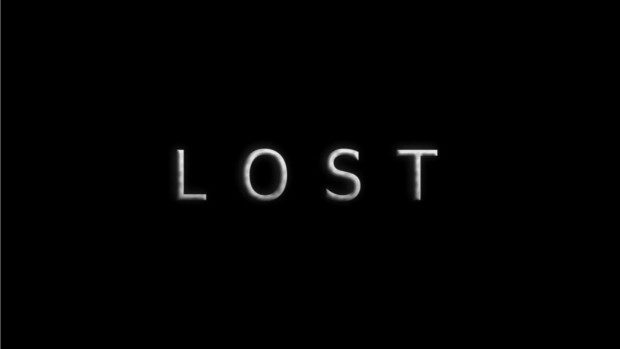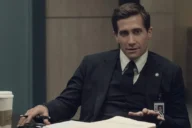It’s a bitter sweet moment when a TV show comes to an end. Be it the much anticipated finale of a pre-planned swan-song of a loved show (Breaking Bad), the mercy killing of a high quality show that jumped the shark (take a bow Heroes) or the hastily rewritten endings of those shows cancelled mid-season (oh, so, so, many). Here, we take a look at two very different endings to two very different shows, Lost and Fringe.
Fringe vs. Lost
Who else sat through the final episode of Lost, after having invested endless hours of time immersed in the strange, and often wandering plotlines, only to rage and rail at the biggest dead end of all dead end plotlines which effectively relegated the entire six season run to a sequence of dreams experienced by the dying ? It is also perhaps worth noting that the final episodes were better received critically in the USA than they were in the UK. Are the British then the seekers of ultimate truths?
Conversely, which people also sat through the final episodes of Fringe, and, despite feeling saddened at the ending of a great show, were satisfied that the plot had at least come full circle and answered most of the questions it had asked in the series. Where Lost got everything wrong, Fringe it seems, got it right.
Fringe was one of those shows that began in a fairly gripping but easy going, Freak of the week manner, but then drew you into the show’s ethos by using great plots and, unusually for sci-fi series, some really top notch acting. Not that I mean to knock the actors appearing in other shows, but John Noble stood head and shoulders above most other sci-fi characters as Dr. Walter Bishop.

Fringe ran for five seasons from 2008
In the early series his portrayal of the mentally scarred man returning to something like normal function was compelling enough, but when the alternate universe was revealed Noble unleashed the full range of his acting talents in his mirror-like acting of Bishop and his alter-ego Walternate. There was something in the set of Noble’s face that allowed the viewer to understand whether they were seeing Bishop or Walternate, before the character even opened his mouth.
Lynchpin of the show and central character Olivia Dunham was ably played by Anna Torv and Joshua Jackson added complexity and depth to the character of Peter Bishop as the show moved on. Noble’s role though was the one underpinning the show. It is a formula that other shows try to latch on to. Warehouse 13 has Eddie McClintock as the big hearted but easily distracted Pete Lattimer, Haven looked to following the formula with Eric Balfour’s early portrayal of Duke Crocker, although thankfully Duke has evolved a little. This is good news; we can’t have every sci-fi or alternate reality series stereotyped by the bumbling sidekick.
Giving The Audience What They (Don’t) Want
Endings though, that’s what we came here to discuss. The twin imperatives warring over what happens within a series can be the writers versus the studio. Writers are often happy with a plot that has a defined beginning, a more open middle section in which different plot elements are brought in, and then a satisfying conclusion in which everything is explained and wrapped up. This is how the vast majority of novels and films work. TV shows though dance to another beat, a show that pulls in the viewing ratings will become a studio workhorse. So long as it continues to bring in the money the studio will demand that it continues. Sometimes this formula can work; viewers seem happy, numbers wise at least, for endless series of Bones. At other times this formula seems to be flogging a dead horse, and I’m sorry Supernatural fans but who is dead this time around? Sam or Dean, and were they resurrected in time to save the world again? Yup. For me, Supernatural is show that long since galloped past the finish line and is now waiting for a vet to have it humanely put to sleep.

Supernatural has killed/resurrected the main characters so often there’s nothing left for a finale
Anna Torv, speaking about the Fringe finale said that when shows ended the viewers should be satisfied, and not always happy but not heartbroken. I’d like to point Messrs Adlard, Darabont, Kirkman and Moore to this view, when The Walking Dead finally comes to the crunch do you think the viewers are going to be happy and satisfied? Or do you think Charlie Adlard will just have everybody served up for a gruesome al fresco lunch in The Walking Dead finale? My money’s on the latter.
Is it important that the viewers are happy with an ending? Another imperative comes into play here, that of creating media coverage. Lost wins hands down on this score, the series finale caused a storm of publicity as reviewers and fans took to forums and blogs to express their admiration, anger or puzzlement as Lost wound up. Why does the end of a show need to generate publicity, hey, we’re looking at syndication, video streaming services and box sets here. The needs of the business can override the demands of great scripting.
In movies, both options are often employed. A film can come to a satisfying and logical conclusion, and then years down the line a sequel pops up. Who needed another Highlander, it came, people’s heads were cut off, and it ended. But then came Highlander 2 with its impossibly contrived plot to bring some new immortals into the mix. Also high in the awful sequel stakes was S. Darko. Sound familiar? Yes, they made a sequel to Donnie Darko. This made no sense to anyone except to the makers, who side-stepped a disastrous opening night at the box office by sending the film straight to video. Enough said.
As far as grand ambition and excellent writing went, Lost failed and Fringe won. The Lost writers failed to grasp what lay at the heart of an otherwise enthralling show and let their creation die with a whimper. In ending Fringe, series creator J.J. Abrams and co-writers Alex Kurtzman and Roberto Orci developed the plot and the characters, they provided a hook at the start of the finale run and used that hook to provide the show’s slightly bittersweet final images. Viewers were both happy and a little saddened at the ending, but they were not heartbroken, and most importantly of all, they were satisfied.
Michael J


















No Comments